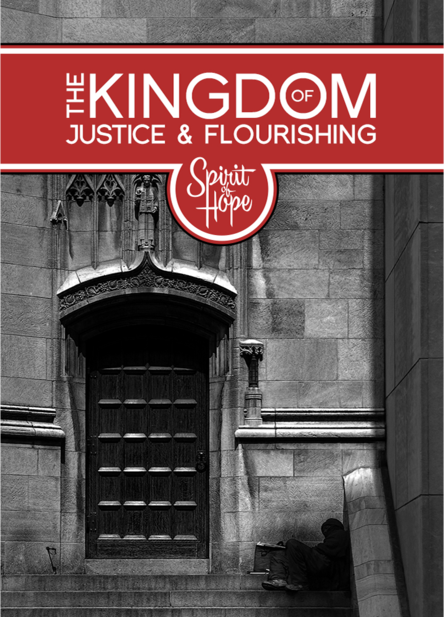Modern evangelicalism’s recent fondness for “church shopping” (or “church hopping”) has led to plenty of perpetual daydreams about the “perfect church” that checks the right boxes of comfortability and convenience. In turn, many are falling prey to consumeristic tendencies and attitudes that influence their thought and action well beyond Sunday mornings.
Indeed, the deleterious impacts of Spectator Christianity are not just confined to the pews of the church or avenues of “formal” or “full-time” ministry. They disable and disempower the church as a body of seers and doers of the Word, serving and creating across the global socio-economic landscape.
To curb and counter those attitudes, the Center for Transformational Churches recently released Spirit of Hope, a set of helpful resources aimed at helping Christians overcome “complacency, consumerism, idolatry and injustice” in everyday life — economic, familial, social, political, and otherwise.
In the trailer for the series, we see a playful prod at the sort of consumerism the curriculum hopes to confront, beginning with a parody of how Christians have diluted and distorted the mission and vision of the local church. “Stop expecting the church to worship for you, to repent for you, to serve others for you, to do justice for you,” the video says. “Stop shopping for the perfect church. You are the church.”
Again, this is not just about re-tooling or re-imagining the format or framework of Sunday services or church programs or soup kitchens. It’s about instilling an ethic of risk and a spirit of service that steps out and leverages the church as the launch base it was intended to be: sending and equipping believers to speak truth and move in creative love and wonder across all areas of social, economic, and political life.
“An awakening church is embracing the mission of the gospel of Jesus Christ, taking it beyond the four walls of the building, participating in God’s redemptive plan for our world, confronting darkness, doing justice and mercy, and seeing God transform lives, relationships, and communities,” the video concludes. “Because this church isn’t a time or a place. It isn’t a building, a product, or a business.”
The flagship resource of the series is Kingdom of Justice and Flourishing, a small-group study with video-based curricula on how the gospel transforms all that we do, whether in our homes, workplaces, neighborhoods, or across our political activity. Weaving together an impressive intersection of Acton-friendly thinkers — including Anthony Bradley, Greg Forster, Chris Brooks, Charlie Self, Brad Wilcox, Tom Nelson, and Amy Sherman — the series offers robust, six-week courses in 5 distinct areas of exploration: community, poverty, work/economics, family, and religious liberty/pluralism.
 The curriculum offers a strong foundation from which to build discussion, including plenty of accessible entry points for everyday Christians who might be new to thinking deeply about the intersection of economics and theology. Whether offering a broad foundation on imago Dei and what it means for human creativity in economic life or posing more specific policy or prudence questions when it comes to urban poverty or entrepreneurship, the Kingdom of Justice and Flourishing series is a comprehensive tool for emboldening the economic imagination of the local church.
The curriculum offers a strong foundation from which to build discussion, including plenty of accessible entry points for everyday Christians who might be new to thinking deeply about the intersection of economics and theology. Whether offering a broad foundation on imago Dei and what it means for human creativity in economic life or posing more specific policy or prudence questions when it comes to urban poverty or entrepreneurship, the Kingdom of Justice and Flourishing series is a comprehensive tool for emboldening the economic imagination of the local church.
Other resources include a small-group curriculum on the basics of the gospel, titled The Story of Holy Love, as well as an ebook written by Greg Forster called The Church on Notice, which draws from Luther’s 95 Theses to stir up a “new reformation” around how to live as Christians (not just how to die).
“The narrow gospel tells you the kingdom is far away, beyond death: ‘Believe in Jesus and someday you will get to the kingdom,’” Forster writes. “We need a bigger gospel because the kingdom is not far away. The kingdom is at hand – arriving in our lives here and now as we live in the gospel by the Spirit.”
Learn more about the series here.

